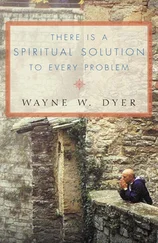In spite of my awareness that the cousin could be lying about this, I felt a shudder through my entire body. I remembered a koan from the secret book that I hadn’t understood until then: “While Master Rinzai was going toward the great hall to give a speech, a monk interrupted him: ‘What if they threaten us with a sword?’ Rinzai muttered: ‘Disaster! Disaster!’ and added the commentary: ‘When waves rise up like mountains and fish become dragons, it is stupid to use a bucket to try to empty the ocean.’”
Rinzai was about to speak to his disciples — in other words, to use intellectual means to communicate knowledge to them. The monk was saying that beautiful ideas are useless in the face of an enemy who can kill us. Yet Rinzai’s repetition of the word disaster did not refer to the impotence of the intellect when we have a sword at our throat. Nor was he saying that to be threatened with death is simply a catastrophe, in spite of all edifying teachings. The two disasters refer instead to the notion that the monk held of himself and of his master. When teachings are reduced to mere explanations, it is a disaster, because the monk is identified with his own intellect. When we identify ourselves with a system of ideas, with who we think we are, then we are paralyzed with the fear of losing ourselves in the face of death. But Rinzai has realized his awakening and surrendered to the simple happiness of being. He has ceased to identify himself with his own image and dwells in inner silence. He is not identified with his teachings, for they are not himself; they are only efforts to describe impersonally the way to peace.
Takata said of this koan: “Some come, others go. I am a stone on the road. Rinzai tells the monk: ‘You see yourself and me as two minds. Disaster and disaster. That is why you think a sword could upset us. A murderer might be able to cut off my head without blinking an eye, but I can also let my head be cut off without blinking an eye.’ Even when the waves and sea creatures attack you (for reality does not behave according to your expectations), your inner silence is unperturbed. To measure life with your intellect is as stupid as trying to empty the ocean with a bucket. Zen is the same, whether in the peace of a monastery or in the midst of combat. The disaster is not in the attack. Let go of the separate self and give yourself to the combat with joy, as if it were a dance with yourself.”
I brought the members of the troupe together and calmly informed them of the problem. I proposed that we walk out on the Tigress and find another theater where we could stage an honest performance with a genuine actress. With the exception of the Argentine singer, everyone agreed that it was degrading for us to serve the vanity of a capricious diva, and they decided to follow me.
The newspapers were chock-full of headlines announcing the end of the romance. Finally, someone had dared to defy the Tigress. . and her response was not long in coming. It was a low blow, something I had not expected at all. In several tabloids headlines appeared that said such things as “Avant-garde Artist Swindles the Tigress!” Others said I was in hiding, sought by the police. The diva herself was quoted as saying I had stolen a large sum of her money. In their legal consequences, these lies were harmless, but they certainly succeeded in tarnishing my image. I could have denied the libel strenuously, but in Mexico it seemed useless, because of the power of the proverb, “Where there’s smoke, there’s fire.” So now I was a crook.
This insult created a breach in my intellect, like a koan. My feeling of shame became a good lesson. Until this point, my disputes with the Tigress had been a kind of game, a sort of artistic bargaining. By accusing her of laziness, it’s true that I was making fun of her, but with a sane humor and one that was based on truth. She had responded with the arms at her disposal: newspaper scandals and clever lies. I had discredited her artistically, but she had demolished me socially. I recalled her words spoken with great conviction during the night of our mezcal drunken session: “A small, weak boxer is in the ring with a big, strong adversary. The big guy starts to beat up the little guy. Now that little guy is me. When the big guy rushes at me for the KO, I pull a pistol out of one of my gloves and shoot him. Never fight an even battle!”
Another attack occurred, whether organized by her or simply a random act of violence inspired by the climate of tension. Late at night, unknown vandals threw rocks at my house, breaking all the windows. I rented an apartment in the suburbs and began to slink down public streets, breathing anxiously. I had the impression that a thug might jump out and shoot me at any moment. But after a few days, I became ashamed of giving way to such panic. I thought of a koan from the secret book: “Master Ungo meditated with his disciples in a place known as the Dragon Door. One day, one of the monks was bitten on the leg by a serpent. Master Botsugen said to Ungo: ‘How can your disciple be bitten by a serpent at the Dragon Door?’ Ungo replied by jerking up his leg, as if he had been bitten by a serpent, and calmly saying, ‘Ouch.’”
In China the mythical dragon is the guardian of hidden treasure. In order to attain immortality, the hero must conquer this powerful adversary. The terrestrial dragon grows wings and is transformed into the celestial dragon. In other words, the self cannot prevail until it has integrated and tamed unconscious drives.
Botsugen’s question insinuates that the perfect dragon (the enlightened monk) should not fall victim to the evils of the material world (the serpent’s bite), but Ungo avoids this trap, suggesting that awakening does not exempt us from animal nature. When he imitates being bitten, he demonstrates that it is a mistake to think of awakening as an escape from pain. When in pain, the awakened human being accepts it with an untroubled mind.
My understanding of this koan enabled me to accept my symptoms of fear without shame. I remembered another koan: “The Diamond Sutra *11says that when a person is ridiculed by others, the sins of their previous lives are the cause. Yet at that moment, by submitting to ridicule, the sins of their previous lives are erased. Is this so?” The response: “Repulsive idiot born through an anus!”
The sutra interprets evils of the present as the result of sins committed in previous lives and affirms that redemption and liberation reside in these very evils. Yet the disciple’s insulting reply means that it is useless merely to justify an evil by looking for its cause in previous lives. We must face the present difficulty before us immediately, without stopping to wonder about its causes or worrying about the consequences of our present actions. When confronted with an attack, what counts is a response that is unencumbered by mental doubts. If we allow even a hair’s breadth to appear between being and nonbeing, we lose our life.
This second koan returned me to myself. I understood that feeling fear was natural, but that this fear need not become cowardice. So I stopped slinking around and made a phone call to ANDA, the national actors union. Invoking my union rights, I demanded a meeting with the Tigress to decide who had the legal right to produce the show.
At ten in the morning the very next day, a noisy crowd was gathered around the entrance to ANDA. My actors were there as well as the actors of the rival troupe and a swarm of journalists. The diva did not deign to appear, but she had sent two muscular bodyguards. They gave me menacing looks and showed me the machine guns they had hidden in golf bags. As her representative at this dispute (which she felt certain of winning because of her political connections), she had sent the Argentine singer. Parroting his boss, he proclaimed my dishonesty in front of the union officials. When I realized that these bureaucrats were looking at me with ill-concealed contempt and that the mocking journalists were harassing me with their flashes, I decided to resort to the weapon of lies myself — but on a grander scale. Instead of limiting the scope of the scandal to a simple dispute among theater people, I decided to make it into a political affair that would affect the whole country.
Читать дальше












